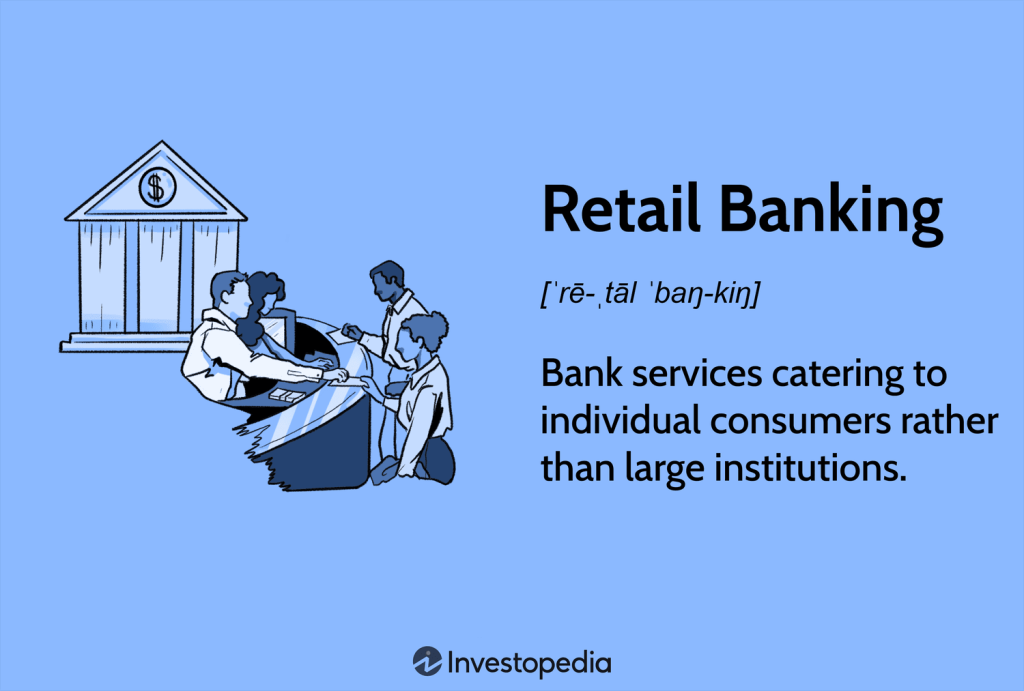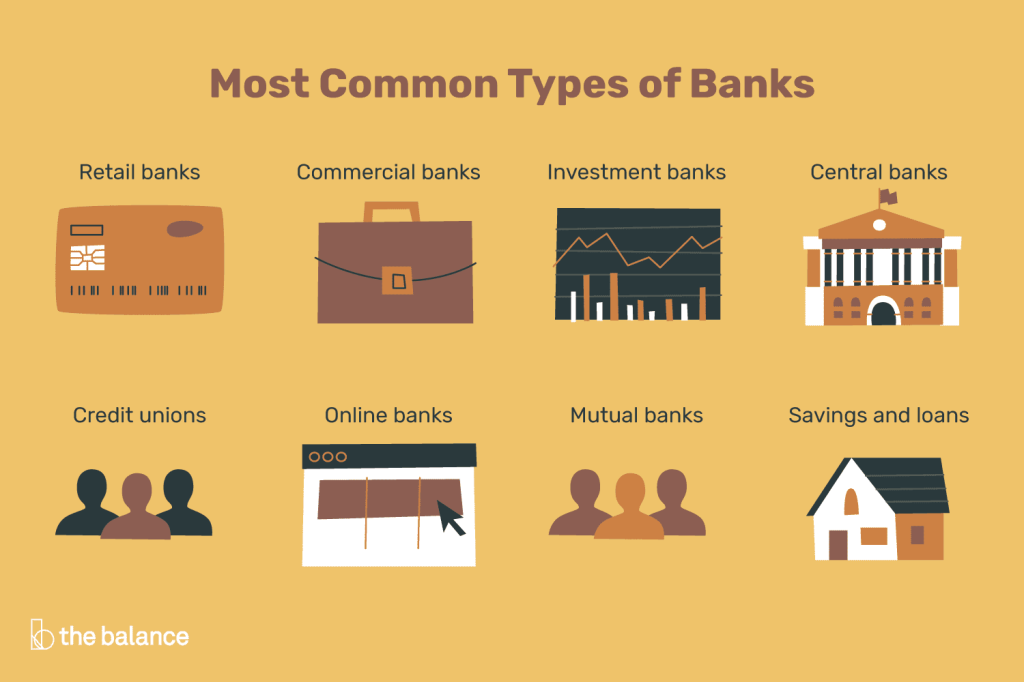Maximize Your Financial Growth With Retail Bank Savings – Take Action Today!
Understanding Retail Bank Savings: An Essential Guide for Financial Security
Introduction
Dear Readers,
3 Picture Gallery: Maximize Your Financial Growth With Retail Bank Savings – Take Action Today!



Welcome to our comprehensive guide on retail bank savings. In today’s fast-paced world, it is crucial to have a strong financial foundation to secure your future. And one of the key components of that foundation is saving money. In this article, we will delve into the world of retail bank savings, exploring what it is, who it benefits, when and where to save, why it matters, and how to make the most of it. So, let’s dive in and discover the power of retail bank savings!
What is Retail Bank Savings?

Image Source: investopedia.com
🔍 Retail bank savings refer to the funds that individuals deposit into their bank accounts, typically in savings or deposit accounts. These accounts are offered by retail banks, which are commercial banks that cater to individual customers rather than businesses or corporations. Retail bank savings provide individuals with a safe and secure way to store their money, earn interest, and access various banking services.
Who Can Benefit from Retail Bank Savings?
🔍 Retail bank savings are beneficial for individuals of all backgrounds and financial situations. Whether you are just starting your career, raising a family, or planning for retirement, retail bank savings offer a range of advantages. Students can use savings accounts to manage their finances and build an emergency fund, while young professionals can save for future goals like buying a home or traveling. Parents can create dedicated savings accounts for their children’s education, and retirees can rely on their savings to supplement their income.
When Should You Start Saving?
🔍 The ideal time to start saving is now! No matter your age or income level, the earlier you begin saving, the better. Time is a powerful ally when it comes to growing your savings. By starting early, you can take advantage of compounding interest, which allows your money to grow exponentially over time. Whether you are in your twenties, thirties, or beyond, it’s never too late to start saving for a more secure future.
Where Should You Save Your Money?

Image Source: investopedia.com
🔍 When it comes to choosing the right bank for your savings, there are several factors to consider. Look for a reputable retail bank that offers competitive interest rates, low fees, and convenient access to your funds. Determine whether you prefer a traditional brick-and-mortar bank or an online bank, both of which have their own advantages. Research different banks and compare their offerings to find the best fit for your financial needs.
Why Does Retail Bank Savings Matter?
🔍 Retail bank savings play a vital role in ensuring your financial security. They provide a safe haven for your money, protecting it from theft, loss, or unexpected expenses. Savings accounts also offer the opportunity to earn interest on your deposits, allowing your money to grow over time. Moreover, having a healthy savings balance provides you with a sense of financial stability, peace of mind, and the ability to navigate unexpected financial challenges.
How to Maximize Your Retail Bank Savings

Image Source: thebalancemoney.com
🔍 To make the most of your retail bank savings, adopt smart savings strategies. Start by setting clear financial goals and creating a realistic budget. Automate your savings by setting up recurring transfers from your checking account to your savings account. Take advantage of any employer-sponsored retirement plans or matching contributions available to you. Lastly, regularly review your savings progress and adjust your strategies as needed to stay on track.
Advantages and Disadvantages of Retail Bank Savings
Advantages:
1. 🌟 Guaranteed Safety: Retail bank savings are insured by government agencies, such as the Federal Deposit Insurance Corporation (FDIC) in the United States, providing protection against bank failures.
2. 🌟 Interest Earnings: Savings accounts offer the opportunity to earn interest on your deposits, allowing your money to grow over time.
3. 🌟 Convenience: Retail banks provide easy access to your funds through branches, ATMs, online banking, and mobile apps.
4. 🌟 Variety of Account Options: Banks offer a range of savings accounts to suit different needs, including basic savings accounts, money market accounts, and certificates of deposit (CDs).
5. 🌟 Additional Banking Services: Opening a savings account with a retail bank often grants you access to a host of other banking services, such as loans, credit cards, and financial advice.
Disadvantages:
1. 🌟 Low Interest Rates: While retail bank savings offer a safe place to store your money, the interest rates on savings accounts are generally lower compared to other investment options.
2. 🌟 Inflation Risk: Inflation can erode the purchasing power of your savings over time, especially if the interest rates on your savings accounts do not keep pace.
3. 🌟 Fees: Some savings accounts may have maintenance fees or transaction fees, which can eat into your savings if not managed properly.
4. 🌟 Limited Liquidity: Depending on the type of savings account, there may be restrictions on the number of withdrawals or transfers you can make within a certain period.
5. 🌟 Opportunity Cost: By keeping a significant portion of your savings in low-interest savings accounts, you may miss out on potentially higher returns offered by other investment options.
Frequently Asked Questions (FAQ)
Q: Can I have multiple savings accounts with different banks?
A: Yes, you can have multiple savings accounts with different banks. It can be beneficial to diversify your savings and take advantage of the best offerings from different banks.
Q: Are the interest rates on savings accounts fixed or variable?
A: The interest rates on savings accounts can be either fixed or variable, depending on the bank and the type of account. It’s essential to check with your bank regarding their specific policies.
Q: Can I lose my money if the bank fails?
A: Retail bank savings are generally protected by government insurance programs, such as the FDIC in the United States. This coverage ensures that your deposits, up to a certain limit, are safe even if the bank fails.
Q: Is it possible to access my savings in case of an emergency?
A: Yes, retail bank savings accounts offer easy access to your funds. You can withdraw or transfer money from your savings account whenever you need it, subject to any withdrawal restrictions imposed by the bank.
Q: Should I consider investing instead of saving in a retail bank account?
A: Investing and saving serve different financial purposes. While saving provides a safe and accessible way to store your money, investing offers the potential for higher returns over the long term. Consider your financial goals, risk tolerance, and time horizon before deciding between saving and investing.
Conclusion: Take Action for a Secure Financial Future
In conclusion, retail bank savings are a fundamental tool for building a secure financial future. By understanding the what, who, when, where, why, and how of retail bank savings, you can make informed decisions and take control of your financial well-being. Start saving today, no matter how small the amount may be. Remember, every penny saved is a step towards a more financially stable tomorrow.
Final Remarks
🔍 Dear Readers, we hope this guide has provided you with valuable insights into retail bank savings. However, it’s important to note that financial decisions are highly individual, and what works for one person may not work for another. We encourage you to consult with a financial advisor or do thorough research before making any significant financial decisions. Your financial journey is unique, and a professional can offer personalized guidance based on your specific circumstances. Stay informed, stay proactive, and take charge of your financial future!
This post topic: Shopping Savings


